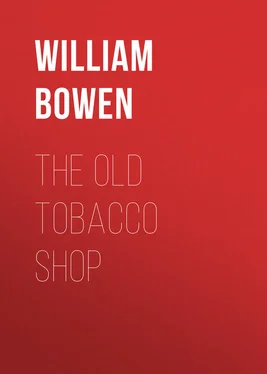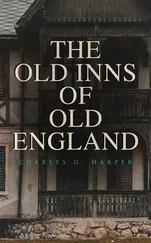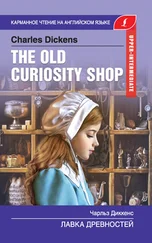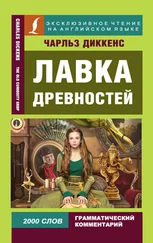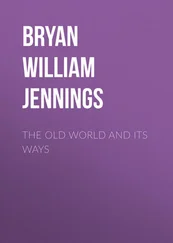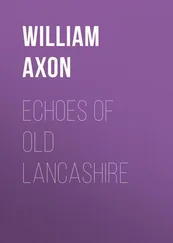William Bowen - The Old Tobacco Shop
Здесь есть возможность читать онлайн «William Bowen - The Old Tobacco Shop» — ознакомительный отрывок электронной книги совершенно бесплатно, а после прочтения отрывка купить полную версию. В некоторых случаях можно слушать аудио, скачать через торрент в формате fb2 и присутствует краткое содержание. Жанр: foreign_antique, foreign_prose, на английском языке. Описание произведения, (предисловие) а так же отзывы посетителей доступны на портале библиотеки ЛибКат.
- Название:The Old Tobacco Shop
- Автор:
- Жанр:
- Год:неизвестен
- ISBN:нет данных
- Рейтинг книги:5 / 5. Голосов: 1
-
Избранное:Добавить в избранное
- Отзывы:
-
Ваша оценка:
- 100
- 1
- 2
- 3
- 4
- 5
The Old Tobacco Shop: краткое содержание, описание и аннотация
Предлагаем к чтению аннотацию, описание, краткое содержание или предисловие (зависит от того, что написал сам автор книги «The Old Tobacco Shop»). Если вы не нашли необходимую информацию о книге — напишите в комментариях, мы постараемся отыскать её.
The Old Tobacco Shop — читать онлайн ознакомительный отрывок
Ниже представлен текст книги, разбитый по страницам. Система сохранения места последней прочитанной страницы, позволяет с удобством читать онлайн бесплатно книгу «The Old Tobacco Shop», без необходимости каждый раз заново искать на чём Вы остановились. Поставьте закладку, и сможете в любой момент перейти на страницу, на которой закончили чтение.
Интервал:
Закладка:
"Basting," said Aunt Amanda.
"I thought that was what you did to a turkey," said Freddie.
"So it is," said Aunt Amanda.
"That isn't a turkey," said Freddie.
"No," said Aunt Amanda, "you baste a turkey with gravy."
"That isn't gravy," said Freddie.
"It's different," said Aunt Amanda. "You see, I have to sew this up with needle and thread, and – "
"You sew up a turkey with needle and thread, too," said Freddie.
"But that's different," said Aunt Amanda. "You couldn't baste a turkey with needle and thread, and you couldn't baste dress-goods with gravy – "
"Why not?" said Freddie.
"Well," said Aunt Amanda, "well, you see, they don't do it that way; it's different ; it ain't the same thing at all; it's like this; when you baste a turkey – "
"Have you ever had any children?" said Freddie.
Aunt Amanda put her hand to her heart suddenly, as if she had received a shot there, and caught her breath; then she looked out of the window, and then round at the wax flowers on the table, and then at the door, and she really seemed to be thinking of running away. But she was too lame to do that, and she at last clasped her fingers together tight in her lap, and looked hard at Freddie. He was gazing at her calmly, waiting for information.
"No," said Aunt Amanda, "I have never – had – any – children."
"Why not?" said Freddie.
"I have – never – been married," said Aunt Amanda.
Freddie thought about this for a moment.
"Didn't anybody ever want you?" said he.
"No," said she, "nobody – ever – wanted – me."
Freddie was puzzled.
"But you're nice," said he.
"That ain't enough," said Aunt Amanda.
"What else do you have to be?"
"You have to be pretty."
"Weren't you ever pretty?"
"I thought – so – once, but – but – I must have been mistaken. I guess I never was."
Freddie thought it over, and announced his decision seriously.
" I would want you, anyway."
Aunt Amanda stretched out a trembling hand to him and ran her fingers through his hair; then she threw both her arms around him and pressed him against her knee. He was much annoyed. He was afraid she might be going to kiss him; but she did not; instead, she pulled out her handkerchief and blew her nose.
"How many children were there that you didn't have?" said Freddie, to change the subject. Aunt Amanda did not understand this at first, but she finally saw what he meant. What did he mean? you may say. What he meant was – well, it is perfectly clear, but it is hard to explain. Anyway, Aunt Amanda understood him. "Three," said she. "Bobby was the oldest, and Jenny next, and James was the littlest one."
"Did they all go to school?"
"Oh dear no. Only Bobby. And once he played hookey, and was gone all day, and didn't come home until after dark, all muddy. I was terribly worried. He was a very mischievous boy, but he was his – mother's – own – "
"Did he play marbles for keeps?"
"Yes, but he went to Sunday-school just as regular, and liked it, and – "
"He liked it?"
"Yes, of course, and he always took good care of Jenny – . She had little yellow curls. They went to Sunday-school together hand in hand, and he didn't even mind her carrying her dolly with her; she wouldn't go without it. He was so careful of her at street-crossings. She loved her dollies. She used to pretend that James was one of them."
"Did James like that?"
"Not very well, but he put up with it for quite a few minutes at a time. He couldn't be still very long. But he was pretty lonesome when Jenny had the measles."
"I've had the chicken-pox. Did Bobby know how to mind his P's and Q's?"
"He didn't mind anybody very well. Once I had a note from his teacher, and it said – "
But Freddie never learned what sin Bobby had committed in school; for at that moment the shop door opened, and Mr. Toby thrust in his head and said:
"Just got to get around to the barber-shop right away this minute; can't put it off no longer. Won't be gone twenty minutes. Freddie!"
"Yes, sir," said Freddie, standing up.
"Do you think you could look after the shop for twenty minutes, while I'm gone?"
Now Freddie did not know it, but this was in fact the most important question that had ever been put to him in his life. Everything depended on his answer; if he said no, we might as well stop this story right here; if he said yes —
"Yes, sir," said Freddie.
"All right. If anybody comes in, just tell 'em to wait."
Freddie left Aunt Amanda, sitting very still, and gazing out of the window, with her hands folded in her lap, and followed Mr. Toby into the shop.
"All right, sonny," said Mr. Toby, "make yourself comfortable. I'll be back in a jiffy. If anybody comes in, you tell 'em to wait." And with that he went out of the door and up the street. Freddie was left alone in the shop.
Everything was very quiet now, for it was beginning to be twilight, and all the people seemed to be indoors. He knew he ought to be going home, but he had promised to mind the shop, and it would never do to leave before Mr. Toby came back. The street door and the door to Aunt Amanda's room were both closed. He sat down on the chair by the front window and looked out across the bull-dog's head. He thought of Bobby and his little sister in Sunday-school, and that led him to think of the hymn that did him so much good:
"Yield not to temptation,
For yielding is sin."
He sang that tune to himself for a while, and he found himself singing other tunes, and finally one which began:
"There was an old codger, and he had a wooden leg,
And he never bought tobacco when tobacco he could beg."
Tobacco! There was a world of tobacco on those shelves. Smoking tobacco, and churchwarden pipes. He strolled around behind the counter, and let down the back of the show-case. There were the churchwarden pipes; he selected one and took it out. It tasted cold and clammy when he put it in his mouth, and he wondered what it would taste like with tobacco in it. He brought the little ladder and got up on it, facing the shelves, and to his surprise he found himself looking directly into the slanting eyes of the porcelain Chinaman's head. He stood there gazing thoughtfully into those eyes, and singing to himself the verse which was always such a help to him:
"Yield not to temptation,
For yielding is sin,
Each vict'ry will help you
Some other to win."
It was growing a little darker now, and he could not examine the Chinaman's head very well without bringing it closer. He took the head in his hands, lifted it from the shelf, got down off the ladder, and sat down on the floor with his back against the counter; and while he was doing this he hummed to himself the next part of his tune:
"Fight manfully onward,
Dark passions subdue."
He put the head on his knees, and took off the Chinaman's little round cap, which proved to be in fact a lid. He put his hand inside and drew out a good fistful of absolutely black tobacco, fine and powdery like coal-dust; he held it to his nose, and it smelt very sweet, in fact much like brown sugar. He wondered if it would taste like brown sugar through the pipe-stem; and humming quietly to himself, "Each vict'ry will help you," he poured the tobacco into the bowl of the pipe. He was disappointed, on sucking in through the pipe-stem, to find that there was no brown-sugar taste at all. Of course, the only way to give tobacco any taste was to light it; he reached up and got a match off the counter behind him, and sitting down again struck the match on the floor. It made a very pretty glow in the twilight, and he watched it as it burned away in his fingers; it would be burnt out in another second, so, humming to himself those ever-helpful words, "Yield not to temptation," he put the pipe in his mouth and touched the lighted match to the tobacco.
Читать дальшеИнтервал:
Закладка:
Похожие книги на «The Old Tobacco Shop»
Представляем Вашему вниманию похожие книги на «The Old Tobacco Shop» списком для выбора. Мы отобрали схожую по названию и смыслу литературу в надежде предоставить читателям больше вариантов отыскать новые, интересные, ещё непрочитанные произведения.
Обсуждение, отзывы о книге «The Old Tobacco Shop» и просто собственные мнения читателей. Оставьте ваши комментарии, напишите, что Вы думаете о произведении, его смысле или главных героях. Укажите что конкретно понравилось, а что нет, и почему Вы так считаете.
